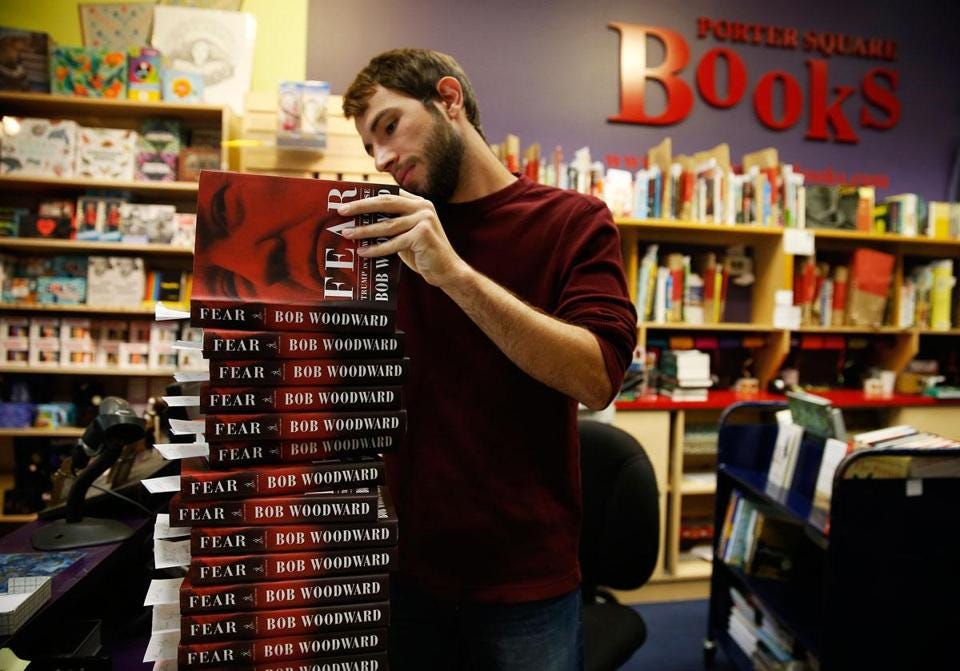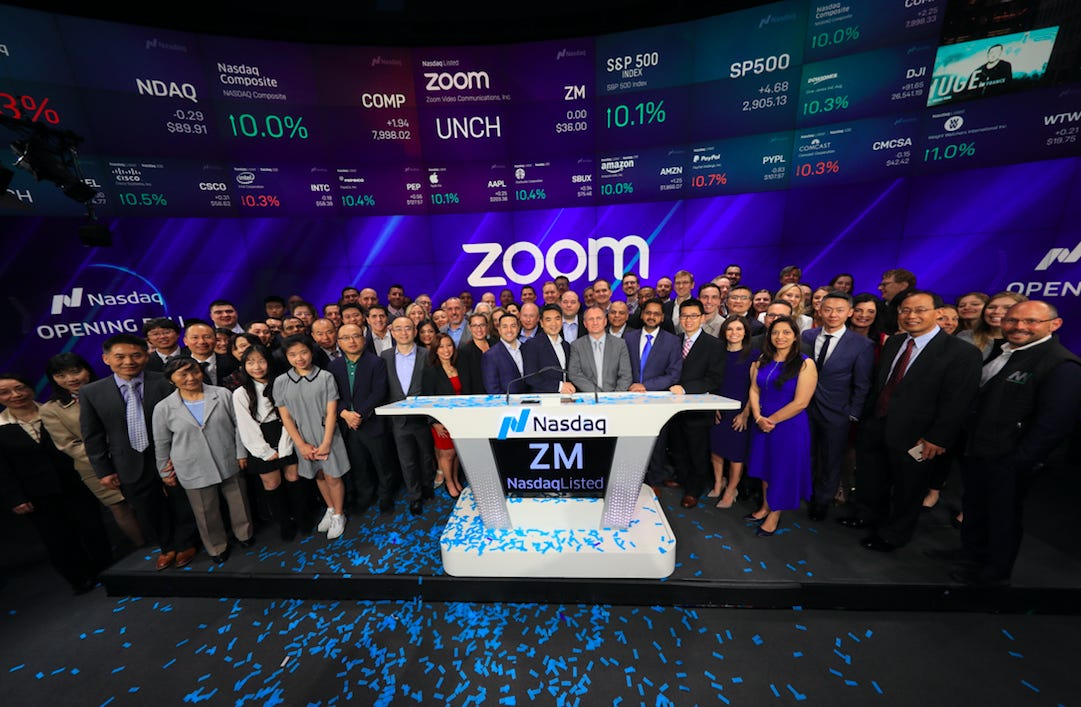4/22 – What’s Next
Happy Monday – Hope you have a great start to your week!
Here is some more optimism to start your week with:
Today, about 10% of the world population lives in extreme poverty, while in 1990 the corresponding figure was about 37%. Two centuries ago almost everyone in the world lived in extreme poverty. – Our World in Data
Lots of interesting content linked below..reply to this email if you think I can be helpful.
Articles to Read.
You Have To Live It To Believe It
Sure, we’ve read about the Great Depression. But most of us didn’t live through it. So can we actually learn lessons from it that make us better with our money?
My generation, the millennials, has never experienced significant inflation. We can read about gasoline lines of the 1970s and 15% mortgage rates in the 1980s. But am I as concerned about monetary policy as the Baby Boomer who does remember those things? And is the Baby Boomer as concerned as the Venezuelan who’s experienced hyperinflation?
The answer to these questions is – at best – maybe.
I say it’s one of the most important topics because it affects everyone. What I’ve experienced as an investor is different from what you’ve experienced, even if we’re from the same generation. And the generation and country you’re born into, the values instilled in you by your parents, and the serendipitous paths we all wander down are out of our control.
This report digs into the effect difference experiences we’ve had have on our ability to make smart decisions about business and investing risk.
—
The Dutch East India Company was richer than Apple, Google and Facebook combined
The VOC’s stocks pushed the company’s worth to a massive 78 million Dutch guilders, which is a pretty solid business even today, but translates to a whopping $7,9 trillion dollar worth today… Yes, really, trillion. That’s 7,900 billion – or 79,000 million!
—
Early-career setback and future career impact
Setbacks are an integral part of a scientific career, yet little is known about whether an early-career setback may augment or hamper an individual’s future career impact.
Here we examine junior scientists applying for U.S. National Institutes of Health (NIH) R01 grants. By focusing on grant proposals that fell just below and just above the funding threshold, we compare “near-miss” with “near-win” individuals to examine longer-term career outcomes. Our analyses reveal that an early-career near miss has powerful, opposing effects. On one hand, it significantly increases attrition, with one near miss predicting more than a 10% chance of disappearing permanently from the NIH system. Yet, despite an early setback, individuals with near misses systematically outperformed those with near wins in the longer run, as their publications in the next ten years garnered substantially higher impact. We further find that this performance advantage seems to go beyond a screening mechanism, whereby a more selected fraction of near-miss applicants remained than the near winners, suggesting that early-career setback appears to cause a performance improvement among those who persevere.
—
Why independent bookstores are thriving in spite of Amazon

Only a few decades ago, mom-and-pop independent bookstores were supposed to disappear, crushed by Barnes & Noble. (The plot of the 1998 rom-com You’ve Got Mail pivots on this very tension.) But today, it’s Barnes & Noble that’s trying to survive the Amazon.com-driven retail apocalypse currently blighting American malls and shopping districts, while independent bookstores are doing pretty fine. According to a recent report from the American Booksellers Association, the number of independent bookstores in the country is up 31 percent since 2009. And book sales at independent bookstores grew nearly 7.5 percent on a compounded basis over the past five years.
Driving the trend is an increase in the number of Americans shopping at businesses in their neighborhoods. “People get that dollars spent locally go back into the community,” says Oren Teicher, CEO of the American Booksellers Association. It also helps that the nuts-and-bolts parts of running a business — inventory and accounting systems, not to mention customer outreach, have gotten much cheaper, helping small businesses compete more effectively with large ones. And independent booksellers are positioned to adapt and respond to their community interests quickly and creatively.
—
“Be yourself” is terrible advice
Some great advice I once got was “Be less yourself.”
Unfortunately I think the best advice comes from Nike, and that advice is, ‘just do it.’ ‘Be yourself’ sucks because you’re being yourself probably the most when you’re giving into your worst tendencies. If I were to ‘be myself’ I would be in bed talking to no one at all times. That’s very ‘me.’ There have been a lot of times when I’ve been held back by fear of failure or humiliation, and friendships and experiences and career-related things I’ve missed out on because I’m very nervous and very shy. But that’s where ‘just do it’ comes in, via Nike. All of the good things I have are because I just tried to do exactly the thing I wanted, over and over and over again. Or because I said yes to something daunting when I desperately wanted to say no. I think it’s good advice: just do it.
—
The New Revolution in Military Affairs

Technology will also radically alter how militaries shoot, both literally and figuratively. Cyberattacks, communication jamming, electronic warfare, and other attacks on a system’s software will become as important as those that target a system’s hardware, if not more so. The rate of fire, or how fast weapons can shoot, will accelerate rapidly thanks to new technologies such as lasers, high-powered microwaves, and other directed-energy weapons. But what will really increase the rate of fire are intelligent systems that will radically reduce the time between when targets can be identified and when they can be attacked. A harbinger of this much nastier future battlefield has played out in Ukraine since 2014, where Russia has shortened to mere minutes the time between when their spotter drones first detect Ukrainian forces and when their precision rocket artillery wipes those forces off the map.
The greatest danger for the United States is the erosion of conventional deterrence. If leaders in Beijing or Moscow think that they might win a war against the United States, they will run greater risks and press their advantage. They will take actions that steadily undermine the United States’ commitments to its allies by casting doubt on whether Washington would really send its military to defend the Baltics, the Philippines, Taiwan, or even Japan or South Korea. They will try to get their way through any means necessary, from coercive diplomacy and economic extortion to meddling in the domestic affairs of other countries. And they will steadily harden their spheres of influence, turning them into areas ever more hospitable to authoritarian ideology, surveillance states, and crony capitalism. In other words, they will try, as the military strategist Sun-tzu recommended, to “win without fighting.”
—

Until recently, very few knew just how powerful a company Eric and his team were building, and what an amazing and indispensable product they had brought into our lives. Quietly, they’ve won the business of everyone from small businesses to the Fortune 50 and top universities. Now that Zoom has filed it’s S-1, people around the world better understand what Zoom has done. One detailed S-1 breakdown states: “From looking at Zoom’s meteoric rise compared to other companies, they’re in a class of their own. Every metric they disclose is best-in-class — revenue growth, sales efficiency, profitability, net dollar expansion, massive growth in $100K+ revenue / enterprise deals.”
┄
More to Check Out:
– Internship Guide
– Andy Grove: How America Can Create Jobs
– Lebron’s High School is Doing Well
– The Notre Dame Fire
– Catalyzing Success: Interview with Pioneer Founder Daniel Gross
Books I Read This Week.
FAQ: I read to explore my curiosity (and lately, I have been reading a lot)
Here is my 2019 bookshelf
- The Alchemist: “It’s the possibility of having a dream come true that makes life interesting.” “Everyone seems to have a clear idea of how other people should lead their lives, but none about his or her own.”
- The Curse of the Mogul: What’s Wrong with the World’s Leading Media Companies – Introduces very interesting lens for analyzing (media) companies. Explains delta between perceived and real competitive advantages.
Let me know if you have/need any recommendations!
My Update.
- A month left of college – “hurry up and wait” is finally materializing, excited for what is next and trying to enjoy the now.
- I recently booked a trip to Portugal (for 8 Days), any recommendations?
- Have we not spoken in a while? Let’s catch up! (hit reply)
Thanks so much for reading! Find me on twitter : )